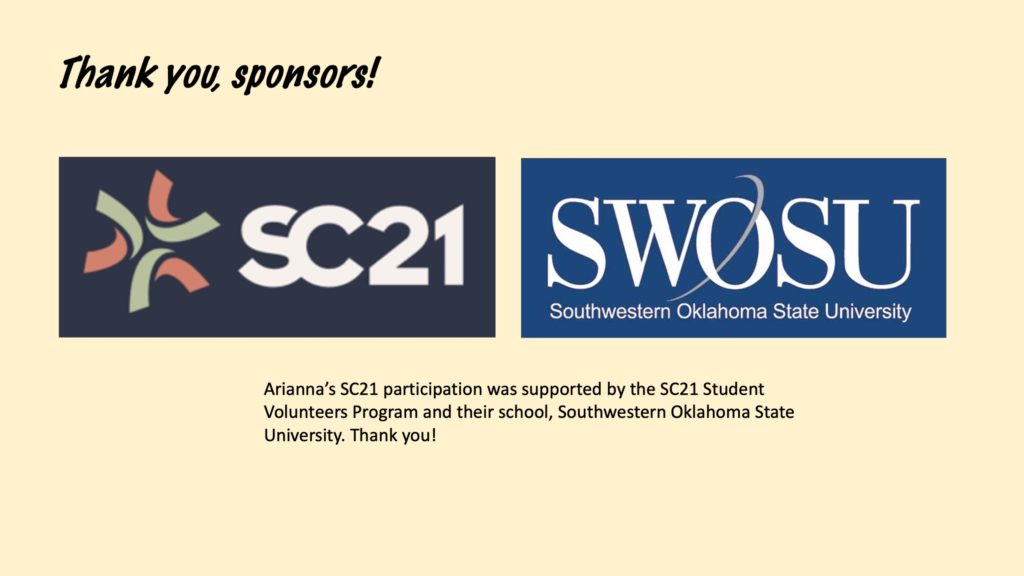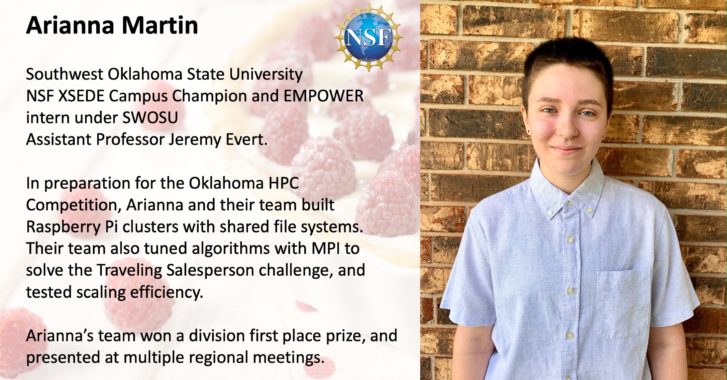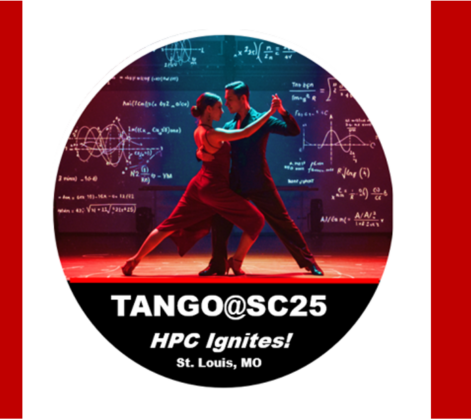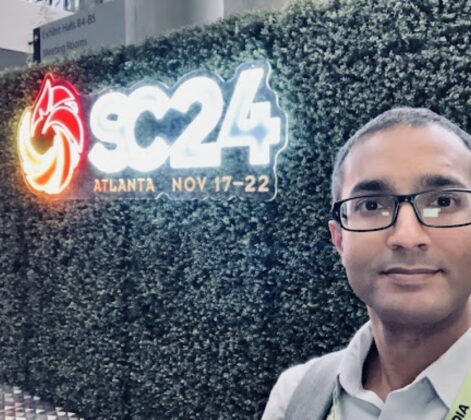Arianna Martin (Southwestern Oklahoma State University)
For many who work in the High-Performance Computing Industry (HPC), answering the question, “What do you do?” is a universal struggle. How do you explain the nature of your vocation to your uncle at Thanksgiving such that his eyes don’t squint in confusion, but rather light up with understanding and interest? Not to mention that HPC is a small (yet global) community, and nearly every time you respond to that question, you are introducing your conversation partner to the idea of a supercomputer.
Personally, I’ve had that experience many times in the past 18 months. I am a fifth-year undergraduate who switched majors from music performance to computer science during COVID in 2020. I immediately joined my new advisor in his long-term project of increasing HPC resources and education at our university, and ever since, I’ve been on a path to becoming an HPC systems administrator.
I built Raspberry Pi clusters and created documentation for the process; wrote and parallelized MPI code to solve computational problems; and now, I am deploying my university’s first supercomputer for HPC education and research. I can hardly believe I’ve learned so much in just a year and a half. Though the journey has been rewarding, it has left me feeling isolated because few people at my school know about HPC, much less involve themselves in it. My time at SC21 changed that—I built relationships with students, like me, who are passionate about HPC. Meeting them enforced my understanding of parallel computing and cluster deployment. I even accepted an internship offer from British Petroleum (BP) for next summer.
Before I left for the conference in St. Louis, my advisor said, “Talk to everyone. Don’t miss an opportunity to connect,” and I took that to heart. I arrived on Saturday and met dozens of other student volunteers. I learned how to walk up to someone I’d never met before and connect with them:
“Nice to meet you! Where do you go to school?… How did you get involved in HPC?… I’m not familiar with that technology, can you explain how it works?”
To my surprise, networking was easy At SC. Everyone was an expert in something, and they wanted to tell you about it. Here, we all shared a common passion for HPC and scientific progress. The students I befriended are from myriad backgrounds. One is a glaciologist who studies ice sheets; another is a physics major funded by a diamond company to study gem cutting at an atomic level; one works with containers, another studies materials science, and a handful of others are budding software and systems engineers. For the first time, as a future sysadmin, I got to meet scientists who use HPC in their research. The best part was that when I told people what I do, their eyes lit up with understanding. We still had things to learn from each other, but at least we shared a common language.
Over the next few days, I attended tutorials that solidified my understanding of crucial HPC concepts. On Sunday, I attended “Parallel Computing 101,” and learned more about MPI and OpenMP than I’d ever been able to on my own. At lunch, I dined with the tutorial presenters who told me I could use their materials to write my own educational resources for students at my university who are interested in parallel computing. On Monday, I went to a tutorial on containers and was thrilled to finally shake hands with an NSF-XSEDE engineer with whom I’ve been working via Zoom since May. I also met several HPC systems administrators—the people who do what I want to do. One of them works for BP in Houston. In fact, they helped me secure an internship for next summer! My professor was right; I talked to everyone and found opportunities.
The rest of the week flew by. I joined someone different at every meal. Through the student program, I volunteered several hours a day and met more wonderful people. I attended workshops, in person and virtually. In the evenings, I attended events around town that were hosted by exhibitors. The most impactful tutorial was “Systems Administration for Non-Sysadmins,” hosted by Jenett Tillotson (National Center for Atmospheric Research), Henry Neeman (University of Oklahoma) and Eric Coulter (Indiana University/XSEDE). Having never taken a class on systems administration (I just dove into it), this tutorial was everything I needed—a foundations course about what a cluster needs in order to work, and how to build one using XCAT. I finally understand how it all works together.
Before I attended SC21, I loved HPC, but I didn’t have a community yet. Sometimes, I felt discouraged about the career path I want to take—how do I become an HPC sysadmin if I’m entirely self-taught? Now, after the conference, I am confident that I made the right choice to pursue HPC. I have connected with other students who are passionate about research computing, and I have made strides in my career path by accepting the internship with BP. HPC is a wonderful community, and I am proud to be a part of it.
_______________
Arianna was featured in an HPCwire SC21 recap video (toward the bottom; at 4:17 into the video). Here’s their LinkedIn profile.





